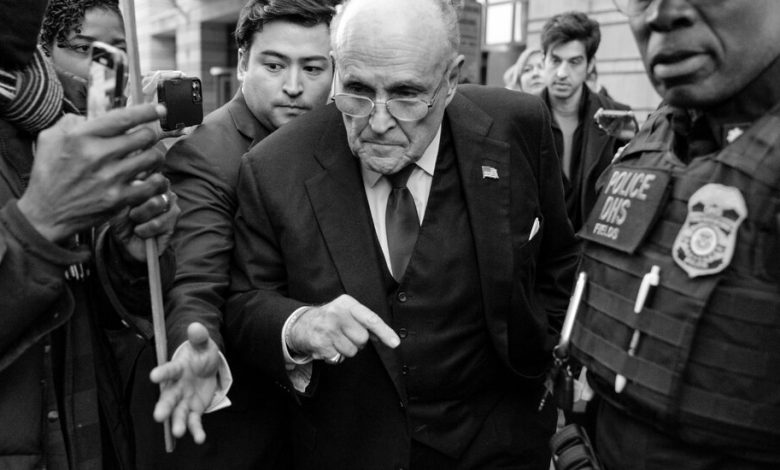How Two Election Workers Bankrupted Rudy Giuliani

No sooner did a jury deliver a nearly $150 million defamation judgment against the former New York City mayor Rudy Giuliani than he went out and again started smearing the two Georgia election workers at the center of the case. Within days, he filed for bankruptcy, shielding himself in the near term from having to surrender whatever assets he has to his creditors.
His brazen thumbing of his nose at the jury and the legal system laid bare some unsettling truths about justice. Defamation law is one of the few tools that lawyers have to hold people accountable for using lies to destroy reputations and to deter wrongdoing. In the aftermath of the 2020 election, county clerks, election officials and other public servants targeted by politically motivated conspiracy theories like the Big Lie have used defamation lawsuits to try to clear their names and correct the public record.
But in a hyperpartisan era when the incentives to tell lies about your political opponents can seemingly outweigh the risks, is defamation law still up to the task? And if admitted liars like Mr. Giuliani can avoid having to pay up, what does accountability even look like now?
Ruby Freeman and Shaye Moss, the two election workers who sued Mr. Giuliani for falsely claiming that they stole the 2020 election in Georgia for Joe Biden, will probably only ever see pennies on the dollar of the full amount that a Washington, D.C., jury awarded them.
There are a few procedural hurdles to clear: The bankruptcy proceedings will hinge on whether a judge decides that Mr. Giuliani’s actions were “willful and malicious.” (If they were, he’ll still have to pay, even in bankruptcy.) Then there’s the question of whether he has the money to pay his debts. According to his bankruptcy petition, he has $1 million to $10 million in assets — nowhere close to what he’d need to clear the roughly $153 million he says he owes in total. (That number doesn’t include ongoing lawsuits against him that could also lead to financial settlements.) Ms. Freeman and Ms. Moss could negotiate a settlement with him or choose to pursue a percentage of his assets and earnings for the rest of his working life.
Recouping any money in a defamation judgment can take time. After juries in Connecticut and Texas found Infowars founder Alex Jones liable for more than $1.4 billion for spreading lies and conspiracy theories about the Sandy Hook school shooting, the families of victims who sued him and his businesses have spent the past year fighting him in bankruptcy. Only after a judge ruled that Mr. Jones’s conduct had met the “willful and malicious” standard did he finally propose a greatly reduced settlement of $5.5 million per year for five years and then a percentage of his business income for the next five. (The Sandy Hook families, who filed their suits nearly six years ago, have offered their own plan to liquidate all of Mr. Jones’s existing assets and to pursue his future earnings to collect on their jury verdict.)
We are having trouble retrieving the article content.
Please enable JavaScript in your browser settings.
Thank you for your patience while we verify access. If you are in Reader mode please exit and log into your Times account, or subscribe for all of The Times.
Thank you for your patience while we verify access.
Already a subscriber? Log in.
Want all of The Times? Subscribe.





